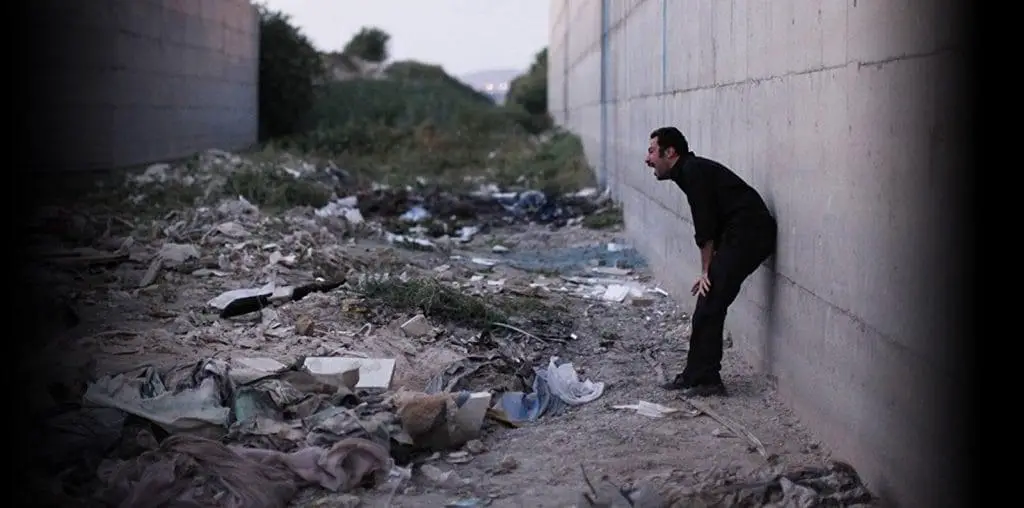
“Nannies never get the same kind of respect in real life that they usually do in the movies,” says Suzanne Hansen, a former Nanny herself, and the author of the hot new memoir You’ll Never Nanny in This Town Again: The True Adventures of a Hollywood Nanny (Crown, 2006, $22.00). ”My experience has been that with most families,” Hansen says, “if one nanny doesn’t work out, you just call up the agency and get a new one. Nannies are as disposable as trash can liners.”
Hansen knows of what she speaks. For several years, she was the live-in kid wrangler for such high-powered Hollywood names Danny DeVito and Rhea Pearlman, Debra Winger, and Michael Ovitz, the vindictive, one-time super agent who unwittingly gave You’ll Never Nanny in This Town Again its name. Hansen’s book (which made it onto the New York Times bestseller list as of February 12), comes smack in the middle of what appears to be a bonafide, pop-cultural nanny renaissance: books along the lines of Emma McLaughlin and Nicola Kraus’ bestselling novel The Nanny Diaries are doing well, and T.V. reality shows like Nanny 911 and Supernanny, have built impressive audiences. Now, Emma Thompson’s mildly perverse fantasy ‘Nanny McPhee’ seems to have lodged itself in the box office top ten. Hansen has made it her business to study all nanny-related art forms, mainly because everyone keeps asking her about them. In the case of Nanny McPhee—adapted by Thompson from the popular Nurse Matilda books and starring herself as a grotesque, firm-handed English nanny with heavenly powers and a devilish sense of humor—Hansen wasn’t initially eager to see the movie.
“Based on the trailers,” she says, “I thought it was going to be some creepy thing with kids locked in the closet—and I don’t really go for that kind of thing. So I was glad that it turned out to be a pretty good movie with a decent message.”
“A movie that that just happens to begin with the announcement that a widower’s misbehaving children have recently eaten the baby,” I remind her.
“Right. I thought that was funny,” Hansen replies.
The film, starring Colin Firth as the widower, is fairly typical of modern “nanny lit,” from Mary Poppins to Sound of Music on down, in that it carries the message that misbehaving children are only bad, and only make it a hobby to chase away their nannies, because they need more time with their parents. In Hansen’s professional opinion, that succinct suggestion usually tends to be more or less true.
“You see a lot of that in the wealthy celebrity families,” she says, “where the children do tend to be extremely disrespectful, because the parents are gone all the time and no one has given them a lot of discipline.”
“So you get kids trying to scare off their nannies by putting frogs in their beds?” I ask.
“That happens, absolutely,” Hansen says. “Not children who put frogs in their nannies’ beds, exactly, but children who just won’t behave. Either consciously or unconsciously, kids believe that if the nanny goes away, then they’ll get their parents back. They meet the new nanny and think, ‘If you weren’t here, my Mom and Dad would be.’”
In the movie, when sweet-faced house-keeper Evangeline (Kelly McDonald) tells the children that she likes them, one of the kids shoots her down, saying, “Yes, but you’re a servant, you’re paid to like us.”
“That really hit me,” Hansen says. “The kids know you are paid to be there, so they are very suspect, they doubt that you can really love them and care about them if you’re being paid to be with them. That part really stung when it happened in the movie, because it’s happened to me.”
In Hansen’s book, she describes a series of wealthy, powerful, celebrity parents who, while depending on others to take care of their lives and children, try to give the impression that they do it all one their own.
“For some people in our culture right now, having a nanny is like having a sign in your living room saying, ‘We are not involved enough in the lives of our children!’” Hansen says. “A lot of these people believe that, no matter what their excuse, being a busy parent who needs to hire help is never, ever acceptable. I think that a lot of nanny movies—including ‘Nanny McPhee’—make it even harder on parents who work, because they make them feel guilty for having to earn a living.”
It’s enough to drive a nanny crackers, the passive-aggressive attitude that so many high-powered parental types end up developing toward their nannies: they need their nannies, but they are ashamed to admit they need a nanny. Hansen also takes note when she hears a movie star claiming that, unlike other celebrities, they would never stoop to having anything as crass as a nanny. This may be true in some cases, but often as not, it only means that the kids are looked after, not by a nanny, but by the housekeeper or secretary.
“A lot of times,” she says, “with staff like cooks and scullery maids—though they aren’t really allowed to call them scullery maids anymore, and I’m sure that irritates some of my former employers—it’s the staff that gets relegated to taking care of the children. So when I hear movie stars who so proudly say, ‘Well, we don’t have a nanny, we wouldn’t dream of letting someone else raise our children,’ I always think, ‘Yeah? Let’s talk to your assistant. Let’s talk to your housekeeper. Let’s talk to your cook. A lot of times the cook will come in to cook the meals, and then, little by little, the job melds into something else and next thing she knows, she’s also the babysitter.”
Speaking of cooks, Hansen’s favorite part of the movie was the way the cook (played by Imelda Staunton) kept claiming that the children weren’t allowed in her kitchen, and had the written contract to prove it.
“The cook with the contract was hilarious!” Hansen says. “I nearly wet my pants over that. She was so proud of that contract. She’d probably had so many experiences working for so many families where the children wreaked havoc on her kitchen that she finally got in down on paper. She was so proud of herself, and she should be, speaking as someone who never got a contract on anything. It was so cool of her.”
“It still didn’t stop her from being tied to the table by and pummeled with vegetables,” I point out.
“Well, that’s true,” she laughs. “But then—this was a fantasy.”
David Templeton takes interesting people to interesting movies in his ongoing quest for the ultimate post-film conversation. This is not a review; rather, it’s a freewheeling, tangential discussion of life, alternative ideas, and popular culture.

